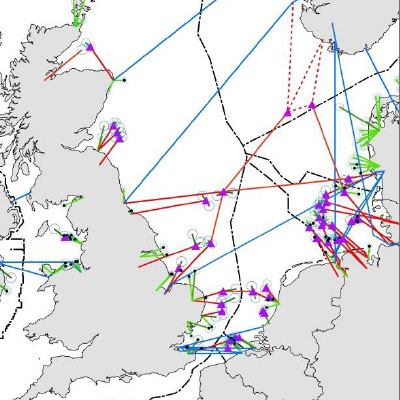BEAGINS: an environmental baseline for energy development in the North and Irish Sea

When: Tuesday 29 November 2017, 14:30-16:30
Where: Room D507, Elicium – 5th floor
To ensure that environmental concerns and impacts are appropriately considered at an early stage in the development of an offshore energy and grid system in the North and Irish Sea, the European Commission commissioned an environmental baseline study based on a regional concept. The outcomes of this study, which was published in July 2017, will be presented by the consultants Ecofys and RPS. The study is highly relevant for both public and private entities. It contains a wealth of information, including a comprehensive Impact Dictionary, a Data Catalogue and an Environmental Baseline.
The study is available here. In addition to presenting the results of the study, the discussion will also focus on how to use the report and database for upcoming projects, and how the environmental goals can be aligned to the envisaged large scale roll-out of offshore wind.
Featured speakers will include: Michiel Mueller and Edwin Haesen of Ecofys, RPS
The development of an offshore renewable energy system, including grid infrastructure, in the Irish and North Seas represents a significant opportunity towards meeting the European Union’s energy goals. To ensure that environmental concerns and impacts are appropriately considered at an early stage in the development of such an offshore energy and grid system, the European Commission has appointed a multi-disciplinary team to prepare an environmental baseline study based on a regional concept.
This Baseline Environmental Study has been named BEAGINS which stands for Baseline Environmental Assessment for the Grid in the Irish and North Seas. The six target Member States for this study include: Belgium, Denmark, Germany, Ireland, the Netherlands and the United Kingdom. The initial output of the study included the preparation of a Regional Concept Report with the objective of developing a detailed plan of the combined energy and grid infrastructure in the Irish and North Seas.
Three capacity scenarios have been developed with associated radial and grid infrastructure options. A Baseline Environmental Report was then prepared comprising a comprehensive Impact Dictionary, a Data Catalogue and an Environmental Baseline. The environmental baseline examines the relevant significant issues of the current state of the environment in relation to biodiversity, flora and fauna; population and human health; soils, geology and sediment; water; air quality and climatic factors; materials assets; cultural heritage; and landscape and seascape. Stakeholder consultation with the Member States was undertaken throughout the development of the study and key issues identified where considered in the development of the Baseline Environmental Report.
Six Recommendations were identified from the baseline study to set building blocks toward creating a backdrop where coordination is facilitated across Member States. They include suggestions relating to development of an appropriate planning framework; coordinated infrastructure roll-out; development of an appropriate management framework; data management and storage; development of best practice guidance; and monitoring and data requirements.
The recommendations reflect progress towards an integrated meshed grid scenario, in line with the impact assessment findings.
This event is open to all participants, you do not need any pass to enter this side event, however if you wish to visit the conference or exhibition at any point, you must be registered.
Organised by:






